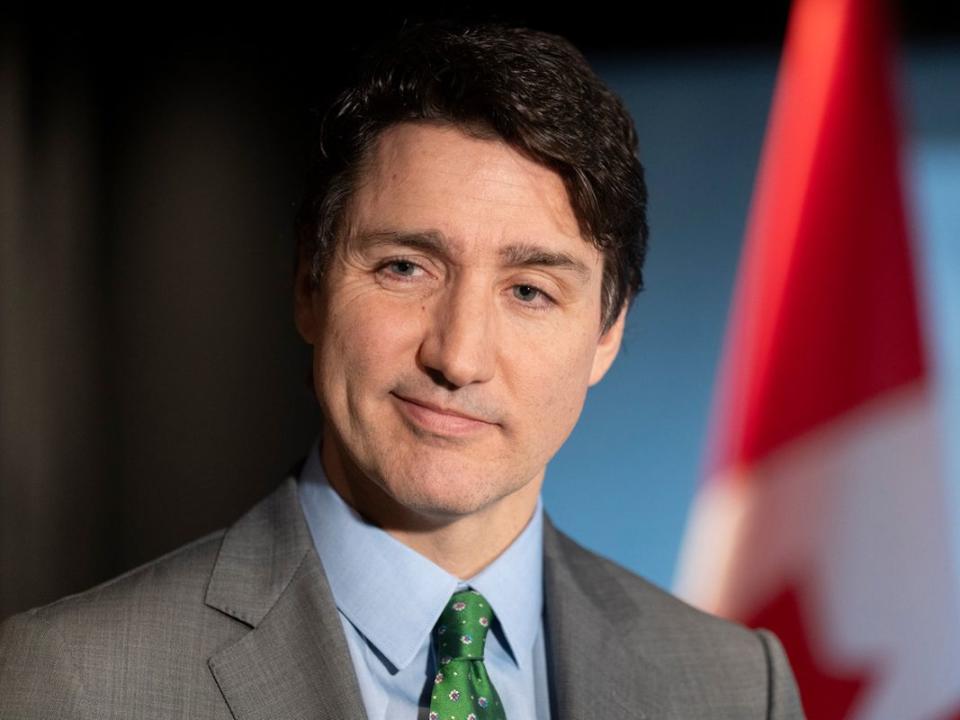Jack Mintz: Justin Trudeau's legacy could be a poorer Canada

This is a weekend in which prime ministers past and present are likely to be considering their legacies.
Justin Trudeau can look back at a number of important policy initiatives in his almost nine years in office. He has done plenty of popular redistribution — subsidizing child care, child benefits, dental care and a skeletal pharmacare program, all paid for by rising corporate and marginal personal tax rates and higher debt. He can also claim credit for recovery from the COVID recession, though he did it with over-the-top, inflationary deficits.
He imposed social justice and carbon policy criteria throughout the government, whether in trade agreements and academic research grants or approvals for resource projects. Even federal budgets now contain a (rarely read) gender analysis, concocted no doubt by glassy-eyed civil servants holed up in windowless rooms.
Despite these achievements, the prime minister doesn’t seem ready to leave. Saying “I couldn’t be the man that I am and abandon the fight at this moment,” he has made clear he still has work to do pushing for women’s and LGBTQ rights and fighting climate change.
He’s certainly right there is more work to be done — but not the kind he’s thinking of. Canada is falling behind economically and it’s getting worse. Eighth among OECD countries in per capita GDP in 1974, we are 14th today. From 2015, when the Liberals were elected, to 2022 our GDP per capita fell from 78.6 per cent of U.S. levels to 72.8 per cent. Relative to the G7 average (the favourite comparison for a finance minister), it fell from 92 per cent in 2015 to 88 per cent in 2022.
As Trevor Tombe of the University of Calgary has shown, almost all of Canada is now poor by U.S. standards. British Columbia (average per capita income of US$57,000), Ontario (US$55,000) and Quebec (US$51,000) are at roughly the same level as West Virginia (US$54,000), South Carolina (US$56,000) and Alabama (US$55,000). Only Alberta (US$80,000) lies closer to the top — though it ranks only 14th among the 60 states and provinces. Saskatchewan (US$71,000) is second in Canada but 25th in North America.
If he does stay on, Justin Trudeau’s eventual legacy may be to have made us poorer than the poorest U.S. state — Mississippi at US$47,000. Continuing with the same anti-growth framework of the past nine years will eventually achieve that. Expand the federal civil service by another 40 per cent so they can dream up even more inefficient programs while working from the comfort of home. Keep hiring by woke criteria rather than merit. Impose even more regulations and taxes to discourage entrepreneurship, investment and growth. Encourage more emigration of our talented and well-educated workers to countries offering now much higher after-tax incomes.
Some of our decline is the result of ideologically driven emissions reduction. An energy transition that shifts resources from our highest value-added sector — oilsands, where VA is almost $1,000 per production hour — to manufacturing and other sectors where it is less than a tenth is obviously going to be very costly. But we don’t have to deliberately make it even worse than it has to be, as we did by failing to provide European allies with multibillion-dollar liquefied natural gas exports to replace Russian gas. After we bailed on Germany, she went to the U.S. and Qatar (not her long-time ally). And, yes, she did sign the memorandum of understanding we insisted on regarding Canadian hydrogen, which at best will play a minor role in her energy needs.
The prime minister is also pouring money into EV and renewables projects that will certainly enrich both foreign and domestic investors in these projects — so much for our concern about inequality — but are far from certain to result in viable production. At the same time, he is piling higher energy costs onto consumers and businesses with new clean fuel regulations, emissions caps and mandates for clean electricity and EV sales. These non-price interventions are contrary to his recently declared preference for the “cleaner … market-based solution” that is the carbon tax. That tax is now in intensive care after he exempted heating oil to gain more political support in the Atlantic provinces.
The Trudeau government’s lack of focus on economic growth will hurt Canada. Bloated, inflationary federal spending on a featherbedded civil service, combined with poorly designed subsidy programs, leave little money for critical federal responsibilities. We have downgraded our military, which hardly has a working tugboat or jet to its name. We haven’t yet been kicked out of NATO for failing to live up to our commitments but we are no longer on speed dial with our U.S., U.K. and Australian allies, who are building next-generation nuclear submarines together. Immigration has become our de facto growth policy. Yet we don’t have adequate housing or public services to support the large numbers coming here. And our health care is ailing, with long wait times, not enough doctors and nurses and emergency triage that needs to be fixed.
Whoever is prime minister in the next few years does have their work cut out for them, but not on more climate and woke rights policies. The challenge will be to reverse an economic slide that is seeing us lose investment and our best and brightest to the rest of the world.
